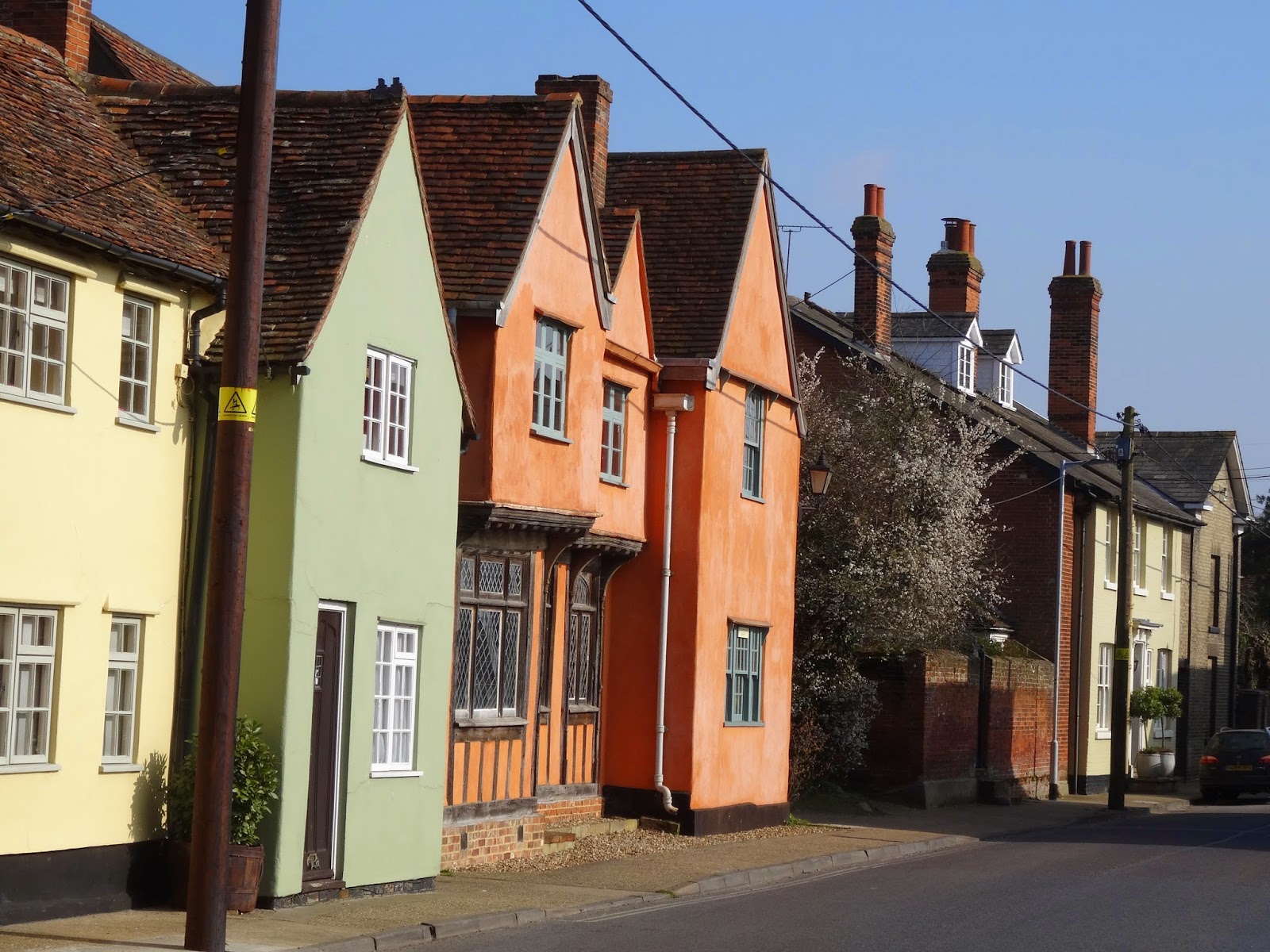So what makes Hadleigh unique? The core of Hadleigh is a long ribbon of medieval development; only the area around the parish church to the west of the High St represents any departure from that. This Medieval core is formed of two streets: the wide High St and its southern continuation, the narrow Benton Street. Like most other towns and villages in Suffolk there are a plethora of Medieval half-timbered houses - though no concerted attempt has been made to turn them back to their medieval states, as was done elsewhere. I think Hadleigh is too work-a-day place for that. Nothing too self conscious here, these houses retain their post medieval façades and additions - pargetting, sash windows and the like. That's why I say the town has a feel of improvisation to it. In addition there red brick, and later, stock brick houses (a good development of the latter between the High St and the parish church). In short everything is pretty harmonious. The nearest Hadleigh gets to monumental, (I suppose it just about qualifies), is the Deanery Tower beside the west end of the church, a late medieval brick tower - the rest of the original structure has disappeared.
Monday, 30 March 2015
Hadleigh
I've been away with the bf house - and cat- sitting in Hadleigh, Suffolk. I've posted a couple of photos of the house in question in an earlier post. Hadleigh is one of those small market towns with which Britain is blessed. None of the architecture is outstanding, in the sense of being grand or monumental - in fact it's all very domestic in scale and improvisatory, accretive - but together they make up a greater whole. And rather attractive the ensemble is, and to take away one element would damage the entirety. Thankfully there hasn't been too much of that, though it was apparent during our stay that there are problems with through traffic.
So what makes Hadleigh unique? The core of Hadleigh is a long ribbon of medieval development; only the area around the parish church to the west of the High St represents any departure from that. This Medieval core is formed of two streets: the wide High St and its southern continuation, the narrow Benton Street. Like most other towns and villages in Suffolk there are a plethora of Medieval half-timbered houses - though no concerted attempt has been made to turn them back to their medieval states, as was done elsewhere. I think Hadleigh is too work-a-day place for that. Nothing too self conscious here, these houses retain their post medieval façades and additions - pargetting, sash windows and the like. That's why I say the town has a feel of improvisation to it. In addition there red brick, and later, stock brick houses (a good development of the latter between the High St and the parish church). In short everything is pretty harmonious. The nearest Hadleigh gets to monumental, (I suppose it just about qualifies), is the Deanery Tower beside the west end of the church, a late medieval brick tower - the rest of the original structure has disappeared.
So what makes Hadleigh unique? The core of Hadleigh is a long ribbon of medieval development; only the area around the parish church to the west of the High St represents any departure from that. This Medieval core is formed of two streets: the wide High St and its southern continuation, the narrow Benton Street. Like most other towns and villages in Suffolk there are a plethora of Medieval half-timbered houses - though no concerted attempt has been made to turn them back to their medieval states, as was done elsewhere. I think Hadleigh is too work-a-day place for that. Nothing too self conscious here, these houses retain their post medieval façades and additions - pargetting, sash windows and the like. That's why I say the town has a feel of improvisation to it. In addition there red brick, and later, stock brick houses (a good development of the latter between the High St and the parish church). In short everything is pretty harmonious. The nearest Hadleigh gets to monumental, (I suppose it just about qualifies), is the Deanery Tower beside the west end of the church, a late medieval brick tower - the rest of the original structure has disappeared.
Subscribe to:
Post Comments (Atom)






No comments:
Post a Comment